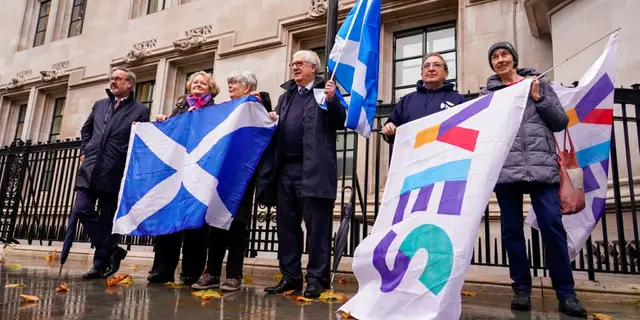United Kingdom’s Supreme Court has ruled the Scottish government cannot hold a second referendum on independence without approval from the British parliament, dealing a blow to nationalists’ hopes of holding a vote next year.
Scottish First Minister Nicola Sturgeon, who leads the pro-independence Scottish National Party (SNP), announced earlier this year she intended to hold an advisory vote on secession next October, but that it had to be lawful and internationally recognised.
In a unanimous verdict of five judges, the Supreme Court ruled the Scottish government could not pass legislation paving the way for an advisory second referendum without the approval of the UK parliament.
After Wednesday’s ruling she repeated her vow to campaign in the next UK-wide election, expected to be held in 2024, solely on a platform of whether Scotland should be independent, making it a “de facto” referendum.
“We must and we will find another democratic, lawful and constitutional means by which the Scottish people can express their will,” she said.
“In my view, that can only be an election.
In the 2014 referendum, Scots rejected ending the more-than 300-year-old union with England with a majority of 55 per cent, but nationalists argue that the vote for Brexit two years later, which the majority of Scottish voters opposed, changed everything.
However, the British government has repeatedly said it would not grant permission for another plebiscite, saying it should be a once-in-a-generation event.
“We respect the clear and definitive ruling of the Supreme Court,” British Prime Minister Rishi Sunak said.
“I think that the people of Scotland want us to be working on fixing the major challenges that we collectively face, whether that’s the economy, supporting the NHS (National Health Service), or indeed supporting Ukraine, now is the time for politicians to work together.”


